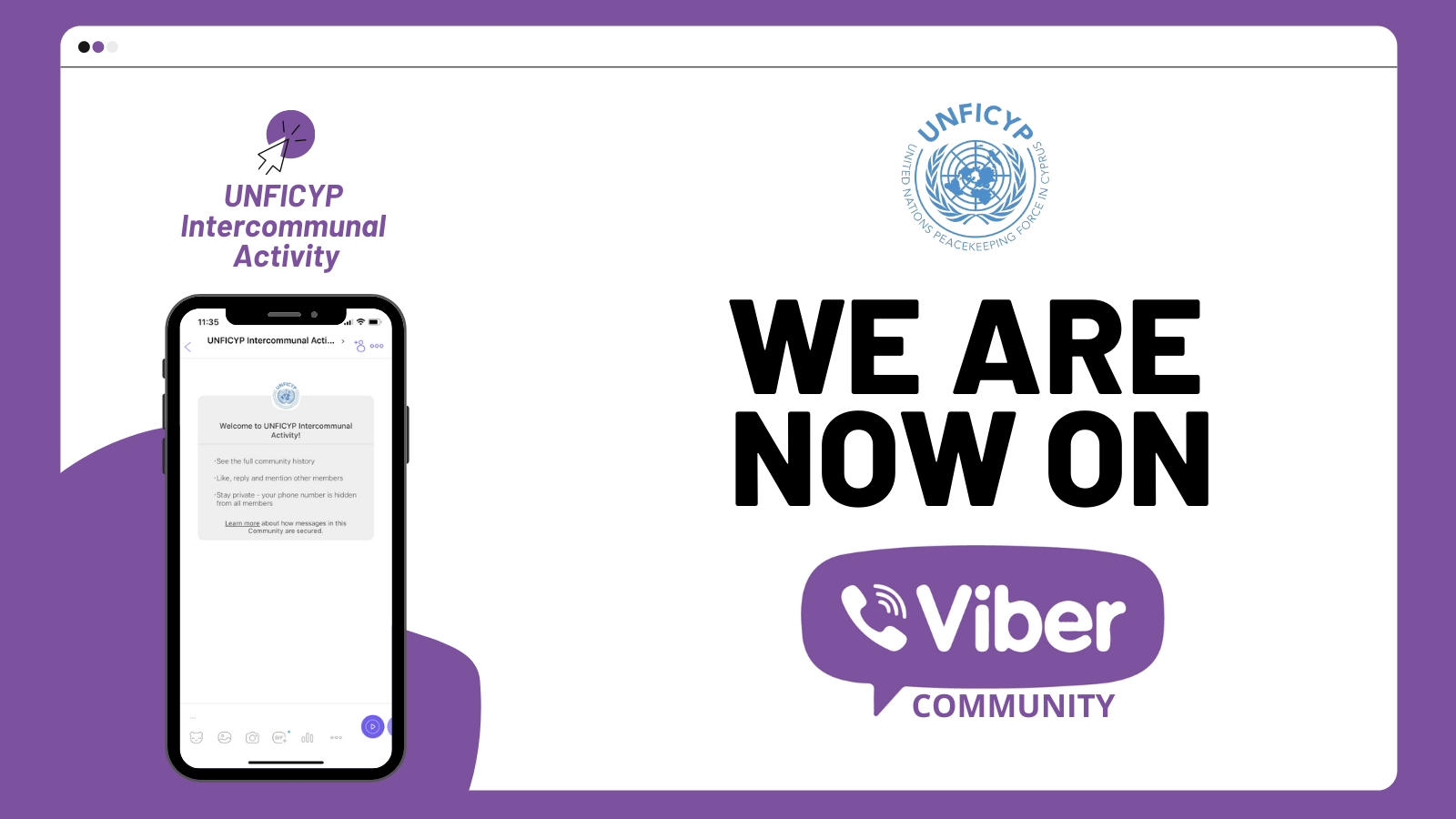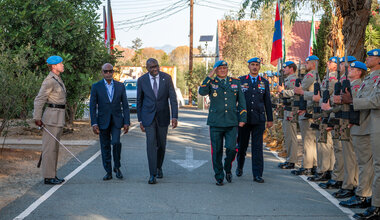Dialogue and participation bring Cypriots closer to a settlement
The U.N. Development Programme (UNDP) today ends a ten year, multi-million dollar initiative that has bridged differences and helped make the Cyprus conflict easier to solve by improving dialogue, communication and understanding on the long-divided island. Funded by the USAID to the tune of over $60 million USD, the Action for Cooperation and Trust (ACT) programme supported the blossoming of an intricate set of relationships across ethnic lines, spanning civil society, business, politics, social activism, as well as the restoration of the island’s historic buildings.
Launched in 2005, the programme’s pioneering maps and surveys now indicate that 53 percent of Greek Cypriots and 29 percent of Turkish Cypriots said they trusted the other community. In 2006 data showed the level of trust of Greek Cypriot and Turkish Cypriot communities towards each other at 19 and 4 percent respectively. Broken down to the local level, the indicators have helped policy-makers map and target their interventions for a decade.
Reflecting on a decade of peacebuilding work across the island, ACT Programme Manager, Christopher Louise, said:
“As the programming draws to a close, we are seeing great optimism with regard to the peace process. The two leaders have committed to a shared goal of reaching a comprehensive settlement as swiftly as possible, while influential civic and political leaders from all communities are now working together to design a societal roadmap for a solution. These efforts are succeeding because of ACT’s work over the last decade.”
The UN’s work in Cyprus over the decades has resulted in monumental shifts in how the island’s communities dealt with each other. With the opening of checkpoints in 2003 and contact becoming possible, UNDP’s work focused on strengthening collaboration and fostering networks which demonstrated the practical benefits of inter-communal cooperation.
UNDP-ACT raises hopes that the Cyprus conflict will ultimately be resolved at the local level. For example, the people of Potamia in the Greek Cypriot community and Konthea (Turmenkoy) in the Turkish Cypriot community, worked with ACT to pioneer participatory planning projects to recapture the inter-communal heritage which had once characterized their villages. Meanwhile, the local Greek Cypriot and Turkish Cypriot communities, separated by the Green Line in the region of Famagusta on the island’s eastern cost, created new business and cultural relationships with ACT’s support. In December 2015, the two mayors of the respective communities agreed to jointly develop a tourist package that would boost the economy of the greater Famagusta region.
Other highlights from the decade include the revision of history textbooks by teachers from both communities. An innovative approach to peacebuilding, the SCORE index continues to help measure levels of social cohesion and reconciliation over time – a model which is now being replicated in Bosnia and Herzegovina, Nepal and Ukraine. The Mahallae platform was similarly utilized to engage citizens in the peace process.
Most recently, the programme oversaw the restoration of the Armenian Church and Monastery, which was awarded a European Union Prize for Cultural Heritage/Europa Nostra in 2015.
The peace negotiations show clear signs of progress. Regardless of the outcome, it is clear that Cyprus has become home to innovation, civic engagement and peacebuilding experiences, with several lessons from the ACT programme being replicated internationally. But the true legacy of UNDP-ACT has been its ability to create a space for civic dialogue which resonates with the formal negotiations, lending to the Cyprus peace process a legitimacy and credibility which has so often been absent in the decades-long journey to find peace in the eastern Mediterranean.
For more information, read the summary report highlighting the achievements of the UNDP-ACT programme.
You can also explore the interactive story of the civil society peace-building movement in Cyprus.
 UN
UN United Nations Peacekeeping
United Nations Peacekeeping






